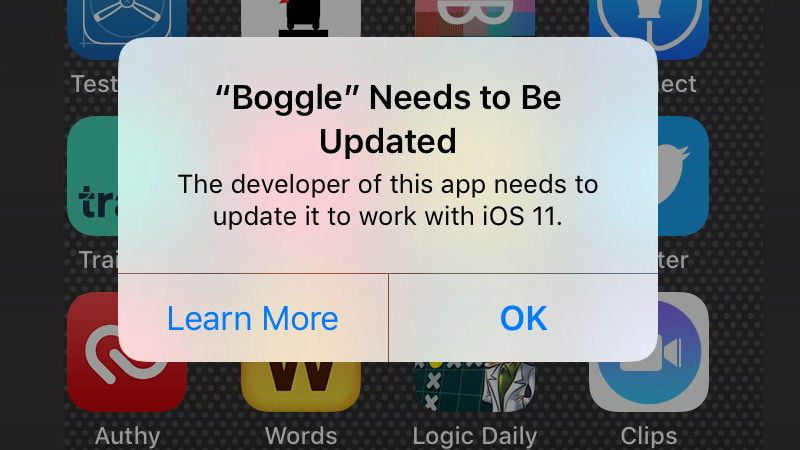
Apple has given numerous warnings about its move to stop supporting 32-bit apps on the App Store moving forward. With iOS 11, Apple officially pulls the plug and refuses to open or run 32-bit apps at all. Furthermore, Apple has also started the transition process for killing 32-bit app support on macOS as well.
9to5Mac reports that iPhones running on iOS 11 refuse to open 32-bit apps at all, and instead shows a dialog box with an error. The error reads “The developer of this app needs to update it to work with iOS 11”. Apple has been warning developers to shift to 64-bit architecture since last year, and now Apple thinks its sufficient to kill off support altogether. The error box has an ‘OK’ button to make it disappear and a ‘Learn More’ button that presumably takes you to a page where Apple outlines why such an error box occurs. All old iPhone and iPad models running on the old 32-bit CPUs cannot update to iOS 11 at all.
The iOS 11 update is meant for the iPhone 5s and newer devices, all iPad Air and iPad Pro tablets, iPad 5th generation and newer devices, iPad mini 2 and newer devices, and the iPod touch 6th generation. You can check whether the app on your iPhone or iPad supports 64-bit architecture or not by heading to General -> About -> Applications. If you have a 32-bit app installed, there will a list of obsolete software existing there. If running on the current iOS 10 software, these 32-bit apps will launch, after a warning. On iOS 11, no such perks are offered.
With macOS High Sierra, Apple has finally begun the transition to drop support for 32-bit apps as well. Apple has reportedly already asked developers to submit 64-bit versions that will be required as a mandate in 2018. From January next year, all new apps must support 64-bit, and from June onwards, this rule will apply to app updates as well. The developers have been told that macOS High Sierra will be the last version to support 32-bit apps.
[“source-gadgets.ndtv”]




